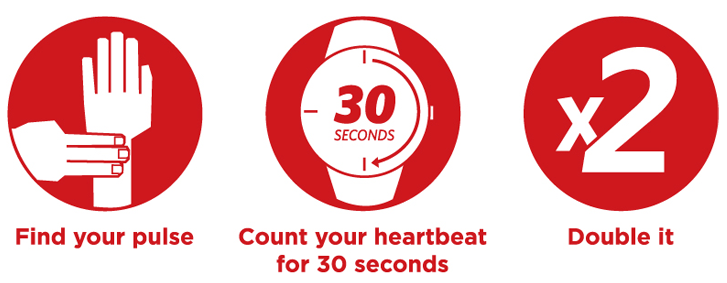
Click Here for Free Bodybuilding and Fitness Magazine Subscription
Test For Overtraining
The Truly Huge Bodybuilding Program...
This program can boost your recuperation ability, allowing you to increase your strength every workout and make size gains every week. The human body is quite capable of making gains each and every week, if it is trained and rested at the proper time within the recuperative cycle. You will also learn the "laws" that force your muscles to grow and how to blast through all plateaus. You don't need steroids to make fast gains in size and strength.
Trainees following this program exactly have never failed to make incredible gains in size and strength. It worked for them and it can work for you! This easy-to-understand book details the exact training to follow to make big gains fast.
For more information go to https://www.trulyhuge.com/huge.htm
A Simple Daily Test To Avoid Overtraining

By Joseph A. Miller
Originally published in Muscle & Fitness Magazine
Each year thousands of athletes lose valuable training time because they unknowingly overtrain and trigger physical and psychological breakdowns. But overtraining can be avoided - if we develop an ability to clinically interpret the physical toll that weight-training is taking on our bodies.
Most athletes exercise too intensely. They do too many forced reps, go to failure too frequently, or do too much work over a given period of time. Their efforts, although inspirational, leave them vulnerable to the "Overtraining Syndrome".
Fortunately, such vulnerability carries recognizable warning signs. To prevent overtaining, all you have to do is monitor bodily responses that mirror the stressfulness of your training load, then adjust your training in response to that feedback.
The East Germans and Russians have been doing this for years. Sports medicine doctors there religiously monitor the amounts of lactic acid found in the athlete's blood following a training session, for lactate tells exactly how much the athlete had to exert himself, and hence, how stressful the workout was on the body.
The Europeans then use this information to determine how the athlete should train in his next workout. If lactate is inordinately high, for example, the brain trust designs the next workout to be less intense.
Few American athletes have access to the sophisticated equipment that their European counterpart seems to have, but there are alternatives that work just as well and can be used by anyone. Of there alternatives, one that provides a very reliable indication of training stressfulness is the resting heart rate.
Heart rate is related to the hormone "catecholamine", which is related to stress. When you train too intensely, with excessive forced reps, volume or by constantly training to failure, the stressfulness of such effort causes the adrenal glands to release too much catecholamine. The catecholamine places the body in a "hyped" or "wired-up" state. In this state there's also a great increase in heart rate.
The relationship between catecholamine, heart rate and overtraining is this: high catecholamine content indicates excessively stressful training; resting heart rate is a direct reflection of excessively stressful training and an impending state of overtraining and physical breakdown. This means that if the resting heat rate is above that which is normal for you, you're on the verge of Overtraining Syndrome.
How can you use heart rate to monitor potential difficulties? Follow this simple procedure: upon awakening in the morning, lie quietly in bed for five minutes, then record your resting heart rate. Following that, rise, routinely weigh yourself and record a second resting pulse count. After your day's weight-training session, again record your bodyweight and resting heart rate. These recording should be taken only after you have showered and rested in a reclining position for 15 minutes.
The next day repeat this entire sequence, beginning with the morning recording and following with the after workout analysis.
How do you use these numbers? Plotted over a period of 7-28 days, the morning heart rate will provide key information about the possibility of overtraining. If there are increases over this period, it is evidence that you overstressing the system. If you see such a steady or sudden rise in your morning readings, you must immediately decrease both the volume and intensity of your training efforts. If this is done in time, you should be able to avoid overtraining completely.
The second heart rate, or that which you record after your workout, also has great value, for it will tell you whether you have trained too intensely. Experience has shown that if this heart rate (taken 15 minutes after finishing the workout) is elevated more than five beats above that taken in the morning, you may have overextended yourself in this particular training session. If so, you should structure your next workout to be less stressful (with a slower pace, less volume, less weight or less intensity of effort).
Keep track of your pulse rate and use your heart and your head to avoid that treacherous trap the Overtraining Syndrome.

